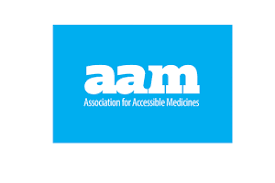The Association for Accessible Medicines (AAM)’s Biosimilars Council supported Pfizer’s complaint regarding J&J using exclusionary contracts to stifle competition for Remicade (Ingredient: infliximab), on Jan. 26.

AAM, formerly known as the Generic Pharmaceutical Association, is a non-profit voluntary trade body representing more than 100 companies that develop and manufacture generic and biosimilar medicines reviewed and approved by the U.S. Food and Drug Administration.
Remicade treats Crohn’s disease, adult ulcerative colitis, ankylosing spondylitis, adult plaque psoriasis, psoriatic arthritis, and rheumatic arthritis. It is the fifth best-selling drug worldwide and J&J’s top-selling pharmaceuticals with an annual global sale of $6.7 billion last year, making it a flagship product for the company to maintain.
Celltrion’s Inflectra, marketed by Pfizer in the U.S., is currently competing with Remicade over market share in the infliximab market.
Pfizer filed a complaint at the U.S. District Court for the Eastern District of Pennsylvania in September, accusing J&J of abusing its monopoly power to exclude competition for Remicade.
In response to the complaint, Janssen Biotech Inc., a subsidiary of J&J that markets Remicade, has already filed two motions to dismiss Pfizer's suit. The company claimed that it was competing fairly in the market and Inflectra had failed to demonstrate sufficient value to patients, doctors, and insurers.
“Like other biologics, Remicade is a complex, infused treatment for serious chronic diseases. Biosimilars are not generics, and their availability will not create the same competitive dynamic as generics,” a company spokesperson wrote in response to an email inquiry from Korea Biomedical Review in November. “Therefore, Celltrion’s biosimilar (Inflectra) is not the same as Remicade, and due to its limited data across multiple indications, doctors may have reservations.”
However, in an “amicus curiae,” a statement made by someone who is not a party to a case and is not solicited by a party, but assists the court by offering information that bears on the matter, Biosimilars Council refuted J&J’s claims, while also opposing its motion to dismiss the complaint.
"J&J and other brand companies can leverage their patient bases for other products that enjoy strong brand loyalty by denying rebates to insurance companies for those products unless the insurers agree not to cover the relevant biosimilar," the council said in a statement refuting Janssen’s claims.
The council also stressed that J&J’s plans could become a “blueprint” for original drug developers trying to fend off competition from a lower-priced biosimilar.
“J&J’s ‘Biosimilars Readiness Plan,’ which defendants do not deny conceiving or executing, would have profound implications for the future of biosimilars generally if left unchecked in this case,” the council said. “Indeed, defendants’ strategy could serve as a blueprint for every brand name biologic drugmaker seeking to maintain monopoly power and profits indefinitely in the face of competition from a lower-priced biosimilar.”
Celltrion welcomed the amicus curiae by AAM.
“We are pleased to see that the biosimilar industry in the U.S is welcoming the introduction of Inflectra in their market and supports Pfizer’s efforts to remove unlawful access barriers for the uptake of biosimilars,” a company official said to Korea Biomedical Review over the phone.
Pfizer also seemed enthusiastic about the amicus curiae.
“We are encouraged by the amicus brief. As the first antitrust challenge to exclusionary tactics designed to prevent competition from a biosimilar, this case will be a key test case for the success of Congress’ biosimilars initiative as embodied in the BPCIA,“ a Pfizer official said to this paper in response to an email inquiry.
Janssen was not immediately available for comment.

